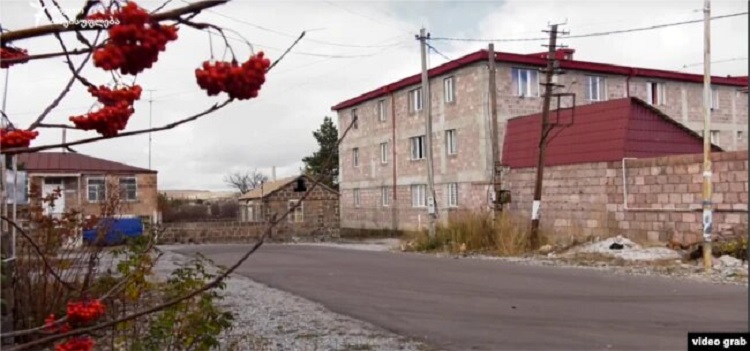Ombudswoman: Prosecutor’s Office investigating several cases of violence in Patriarchate’s boarding school

Georgian Public Defender Nino Lomjaria has stated that her body received information about investigations in the Patriarchate’s boarding school from the country’s Prosecutor’s Office.
Georgian Public Defender Nino Lomjaria has stated that the country’s Prosecutor’s Office is investigating several cases of violence in the Patriarchate’s Ninotsminda boarding school where top clerics have not allowed inspectors to conduct mandatory monitoring.
Archbishop Spiridon, who administers the boarding school with 56 children, has stated several times that he will not allow the public defender’s monitors into the building ‘because Lomjaria and her staff are supporting anti-Christian attitudes.’
 Archbishop Spiridon says that the public defender and NGOs are 'dangerous for children.' Photo: reginfo.
Archbishop Spiridon says that the public defender and NGOs are 'dangerous for children.' Photo: reginfo.
Lomjaria says that the state agencies ‘have been indifferent to the problem and have done nothing’ to ensure the enforcement of law and the presence of inspectors in the facility.
She says that the investigations launched according to the testimony of a former beneficiary of the facility indicates ‘serious problems there and that the beneficiaries are unable to ask for help while they have to live at the boarding school.’
Lomjaria says that only one social worker has been allowed into the boarding school after ‘sharp statements’ from her office and the involvement of the UN.
However, the social worker is unable to conduct any monitoring because it is our job and she has no access to necessary documentation,” Lomjaria says.
Public Defender’s Statement on Ninotsminda Children's Boarding School https://t.co/PZ20PWSRMd
— Ombudsman of Georgia (@Ombudsman_Geo) May 19, 2021
She expressed the suspicion that after her employees enter the facility ‘the children may be under the serious influence of the facility leadership and it will be difficult to communicate with them in a proper way.’
Civic activists and NGOs, who protested the barring of monitors into the building on the Children’s International Day yesterday, have also condemned the presence of bishop Serapime Jojua at the boarding school yesterday who was accused of a sexual abuse of a minor several years ago.
Lomjaria and other NGOs say that all remaining boarding school must close in the country, like in most European states and they must be replaced by family-type facilities with fewer children.
 Tweet
Tweet  Share
Share